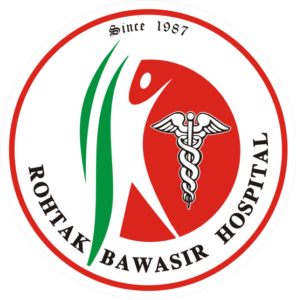The Role of Diet and Fiber in Preventing and Managing Piles


Updated on: 4th Jun 2024
Piles, also known as hemorrhoids, are swollen blood vessels in the lower rectum and anus that can cause discomfort, pain, and bleeding. They are a common condition, affecting millions of people worldwide. While various treatments are available, diet and fiber intake play a crucial role in both preventing and managing piles. This blog will delve into how diet and fiber can influence this condition, offering practical advice on dietary choices and lifestyle changes.
Understanding Piles
Before we explore the dietary aspects, it’s essential to understand what piles are and why they occur. Piles can be classified into two main types:
- Internal Hemorrhoids: These occur inside the rectum and are typically not visible. They may not cause pain but can lead to bleeding during bowel movements.
- External Hemorrhoids: These are located under the skin around the anus and can be painful, especially when a clot forms.
Piles can result from increased pressure in the rectal area due to several factors, including:
- Straining during bowel movements
- Chronic constipation or diarrhea
- Obesity
- Pregnancy
- Sedentary lifestyle
- Aging
The Connection Between Diet and Piles
Diet plays a pivotal role in preventing and managing piles. A well-balanced diet can help maintain regular bowel movements and reduce straining, which is a primary cause of piles. Specifically, the intake of fiber is vital.
The Importance of Fiber
Fiber is a type of carbohydrate that the body cannot digest. It is found in plant-based foods and is crucial for maintaining digestive health. There are two types of dietary fiber:
Soluble Fiber: This type dissolves in water and forms a gel-like substance in the gut. It can help lower cholesterol and stabilize blood sugar levels. Foods high in soluble fiber include oats, beans, lentils, apples, and citrus fruits.
Insoluble Fiber: This type does not dissolve in water and adds bulk to the stool, helping food pass through the digestive tract more efficiently. Foods high in insoluble fiber include whole grains, nuts, seeds, and vegetables like carrots and celery.
How Fiber Helps Prevent and Manage Piles
Promotes Regular Bowel Movements: Adequate fiber intake softens stool and increases its bulk, making it easier to pass. This reduces the risk of constipation and the associated straining, which can lead to piles.
Reduces Straining: When you consume enough fiber, the stool is softer, and bowel movements become less strenuous. This is particularly important for individuals who are prone to straining due to conditions like chronic constipation.
Improves Gut Health: A high-fiber diet promotes the growth of beneficial gut bacteria, which can enhance digestion and overall gut health. A healthy gut can reduce the risk of digestive issues that contribute to piles.
Helps Control Weight: High-fiber foods tend to be more filling, which can help with weight management. Maintaining a healthy weight can reduce the pressure on the pelvic region and lower the risk of developing piles.
Recommended Fiber Intake
The recommended daily fiber intake varies by age and gender, but a general guideline is:
- Men: 30-38 grams
- Women: 21-25 grams
Most people fall short of these recommendations. Incorporating more fiber-rich foods into your diet is essential to reap the benefits.
Foods to Include in Your Diet
Incorporating a variety of fiber-rich foods into your daily diet can help prevent and manage piles. Here are some excellent options:
Whole Grains: Oats, brown rice, whole wheat bread, and quinoa are excellent sources of both soluble and insoluble fiber.
Fruits: Apples, pears, berries, and bananas are not only delicious but also high in fiber. Aim to eat the skin when possible, as it often contains additional fiber.
Vegetables: Leafy greens, carrots, broccoli, and Brussels sprouts are high in fiber and nutrients. Including a variety of colorful vegetables can enhance your diet.
Legumes: Beans, lentils, and chickpeas are fantastic sources of fiber. They can be added to soups, salads, and main dishes for a nutritious boost.
Nuts and Seeds: Almonds, chia seeds, and flaxseeds are not only rich in fiber but also healthy fats. A small handful can make a great snack or topping for yogurt.
Psyllium Husk: This natural fiber supplement can help regulate bowel movements. It’s especially useful for those who may struggle to get enough fiber from food alone.
Tips for Increasing Fiber Intake
Start Gradually: If your current fiber intake is low, increase it gradually to avoid gastrointestinal discomfort. Adding too much fiber too quickly can lead to bloating and gas.
Stay Hydrated: Drink plenty of water when increasing fiber intake. Fiber works best when it absorbs water, helping to soften the stool.
Choose Whole Foods: Opt for whole, unprocessed foods whenever possible. These are typically higher in fiber than their processed counterparts.
Plan Your Meals: Incorporate fiber-rich foods into your meals and snacks. Aim for a balance of both soluble and insoluble fiber throughout the day.
Read Labels: Check nutrition labels for fiber content when purchasing packaged foods. Aim for options with higher fiber counts.
Lifestyle Changes to Complement Diet
While a fiber-rich diet is essential for managing piles, other lifestyle changes can also help:
Stay Active: Regular physical activity promotes healthy digestion and can help prevent constipation. Aim for at least 30 minutes of moderate exercise most days of the week.
Maintain a Healthy Weight: Weight management can reduce pressure on the pelvic region, helping to prevent piles. A combination of a healthy diet and regular exercise can aid in weight control.
Avoid Straining: Take your time during bowel movements and avoid straining. If you feel the urge, respond promptly instead of waiting.
Limit Sitting: Prolonged sitting can increase pressure in the anal area. Take breaks to stand and move around, especially if you have a desk job.
Consider Bathroom Habits: Use the bathroom when you feel the urge to go. Delaying can lead to harder stools and straining.
Conclusion
Piles can be an uncomfortable and embarrassing condition, but dietary changes, particularly increasing fiber intake, can play a significant role in prevention and management. By incorporating a variety of fiber-rich foods into your diet and making simple lifestyle changes, you can improve your digestive health and reduce the risk of developing piles. If you experience persistent symptoms or severe discomfort, it’s essential to consult a healthcare professional for proper evaluation and treatment.
Embracing a fiber-rich diet not only benefits those with piles but also contributes to overall health and well-being. Start making these changes today, and take control of your digestive health!
Meet Our Specialists

Dr. Raj Kumar Garg (B.A.M.S.)
40+ Years of Experience

Dr. Rahul Garg (B.A.M.S.)
15+ Years of Experience

